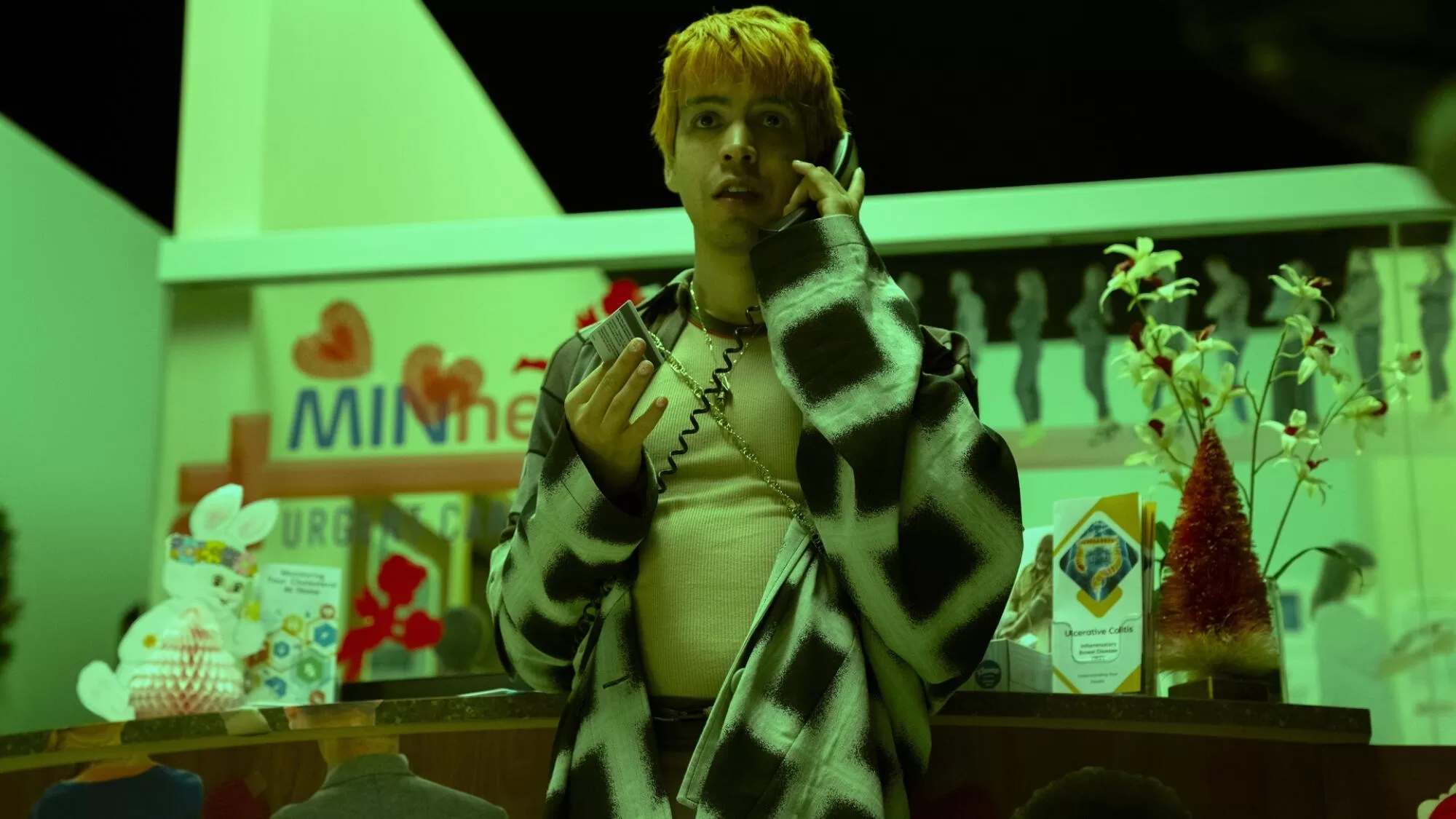On New Year’s Eve 2020, comedian and actor Julio Torres decided to splurge on himself. He headed to Mociun, a jewelry store in the Williamsburg area of Brooklyn, N.Y., and picked out a delicate oyster earring — a dangly little treat to celebrate the end of a difficult year. When he lost it less than 24 hours later on the floor of a nightclub, it felt like some kind of omen.
“It was my first time wearing it out, and I lost it immediately,” he said, laughing at the memory. “Literally no one saw it. I spent hours and hours with my flashlight on the dance floor trying to find it. I just couldn’t get over the symbolic weight of losing it at a New Year’s Eve party.”
In the car on the way home, with all hope of finding the earring gone, he decided that if this were some kind of sign from the universe, he was going to make it a good one.
“I thought, ‘F— it. I’m gonna make a show about this.’”
“Fantasmas” is the fruit of those efforts — an HBO comedy that follows a fictionalized version of Torres on a mission to find his lost earring. For some (maybe most), the loss wouldn’t have been more than a mundane annoyance of being alive. But as he proved with ”Los Espookys” and his feature directorial debut, ”Problemista,” Torres has a knack for homing in on the mundane and spinning it into the fantastical and absurd.
The six-part series, which premiered earlier this month at the television-centric ATX Festival in Austin, Texas, plays out like a fever dream. As Torres makes his way through a hazy, kaleidoscopic New York, he encounters a menagerie of characters, all loosely connected to his search and all consumed by their own quests (for love, for identity, for purpose).
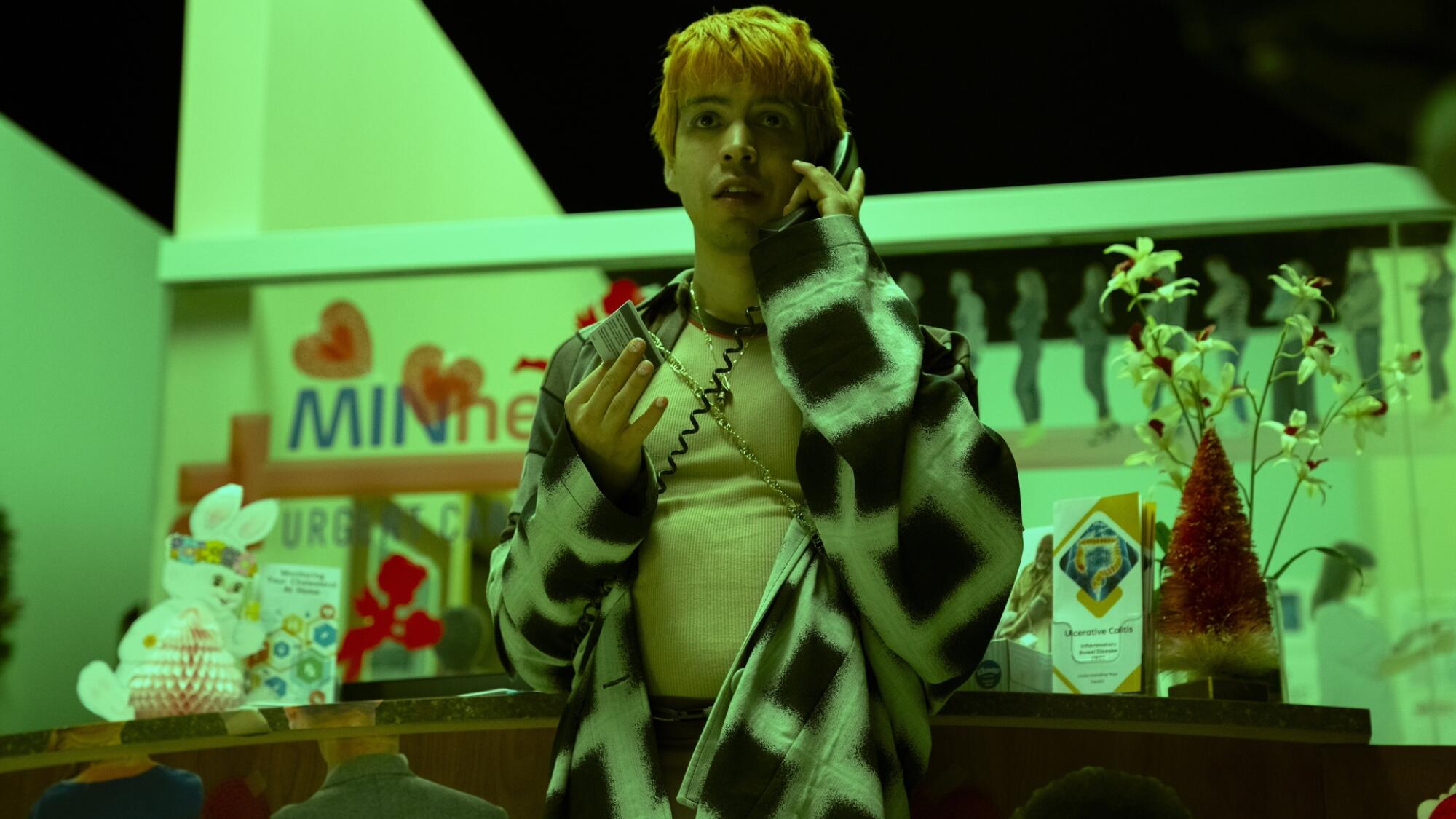
“I have absolutely zero idea what anyone will make of it,” he said.
When we meet, he’s just landed in Austin, a few hours before his premiere. But rather than being nervous, Torres felt excitement to finally see how an audience would react to the idea he’s been sitting with for the last four years.
Like most of his projects, ”Fantasmas” stands alone in the TV landscape. It plays out a bit like a sketch show, with the audience spending time inside various vignettes, following characters we may or may not ever see again. There are also dozens of familiar faces — guest stars include Steve Buscemi, Julia Fox, Bowen Yang and Emma Stone (who also serves as executive producer) — but just when you think you’ve gotten a hold of what ”Fantasmas” is, it slips right through your fingers again, trailing off in a new, unexpected direction.
Within the first few minutes of the pilot, Torres climbs into a rideshare and becomes absorbed by the sitcom playing on the back-seat TV. We’ve hardly gotten to know his character before we’re sucked into a montage of “MELF” episodes, watching Paul Dano grapple with his feelings for an ”Alf”-like muppet, which is tearing apart his family in the process.
So how does one go about selling a show like this?
“I mean, you kind of don’t,” Torres admits. “By the time I was pitching it, I had already done [comedy special] ‘My Favorite Shapes’ with HBO, and was working on ‘Los Espookys,’ so they already had a sense of who I was as a writer, and they mostly went off of that.”
It’s been a big year for Torres — in addition to ”Fantasmas,” ”Problemista” premiered in March. The 37-year-old says the release of these projects being only a few months apart wasn’t exactly how he’d envisioned things. Between the pandemic and last year’s Hollywood strikes, his projects have existed in a near-constant state of flux. In a two-year period, while waiting to film Season 2 of ”Los Espookys,” he finished the scripts for ”Fantasmas” and wrote and directed ”Problemista,” which was originally set to premiere in August 2023. It wasn’t ideal, but Torres convinced himself that things would work out for the best.
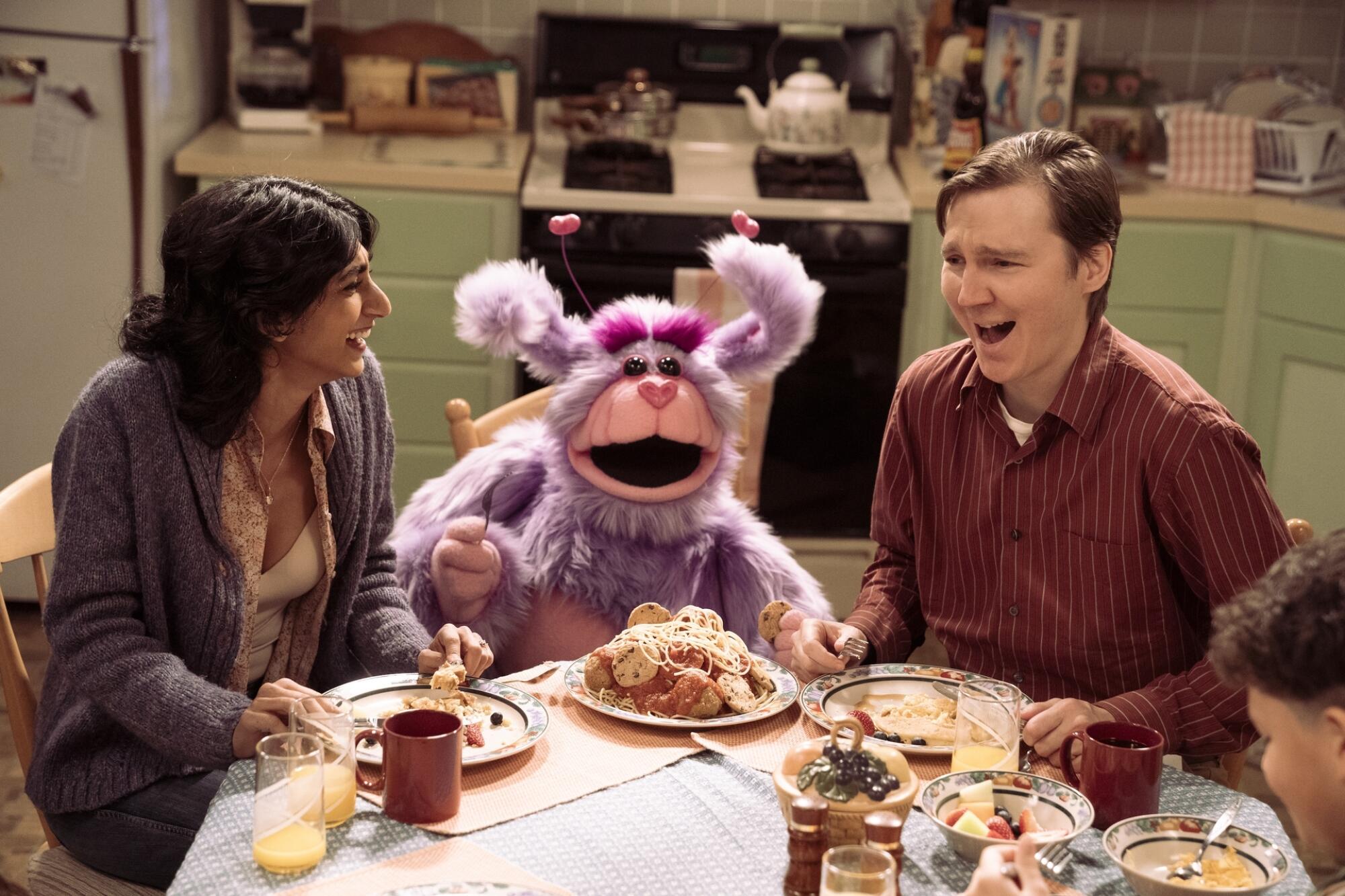
“I think I’m relentlessly optimistic,” he said. “That’s my way of willing something to be good.”
It’s a trait he says he inherited from his mother.
“She definitely believes in signs and omens, but everything is a good sign,” he says. “There’s never, ever been a bad one.”
That outlook has seeped into Torres’ work. It’s not to say that he never dives into the darkness — ”Problemista” finds humor in the stressful and difficult experience of trying to secure a work visa to stay in the United States — but his work is never consumed by it. The same goes for the characters he writes.
“‘Fantasmas’ is very empathetic toward everyone who’s onscreen,” he said. “The characters are the kind of people you bump into that you might never see again but they made an impact on your life.”
In any other production, Torres’ characters would be extras or background actors; people who occupy the screen for a few fleeting moments but who aren’t usually given the luxury or space to have a rich, inner life. “As an obsessive person, I’ve been noticing that I write about very obsessive people,” he said. “People who can’t let go of this one thing.”
”Fantasmas” is full of these characters: a teacher obsessed with psychoanalyzing her student’s doodles, one of Santa’s disgruntled elves and a health insurance rep deeply committed to upholding her company’s policies. As a director, Torres gravitates toward friends and previous collaborators, as well as actors who have something to give that audiences might not have seen yet.
It’s what made his most popular ”Saturday Night Live” sketches so fun to watch, as he teamed up with Stone in a bit about an actress engrossed in the very small part she has in a gay porn, or Ryan Gosling as a man obsessed with “Avatar’s“ font choice of Papyrus.
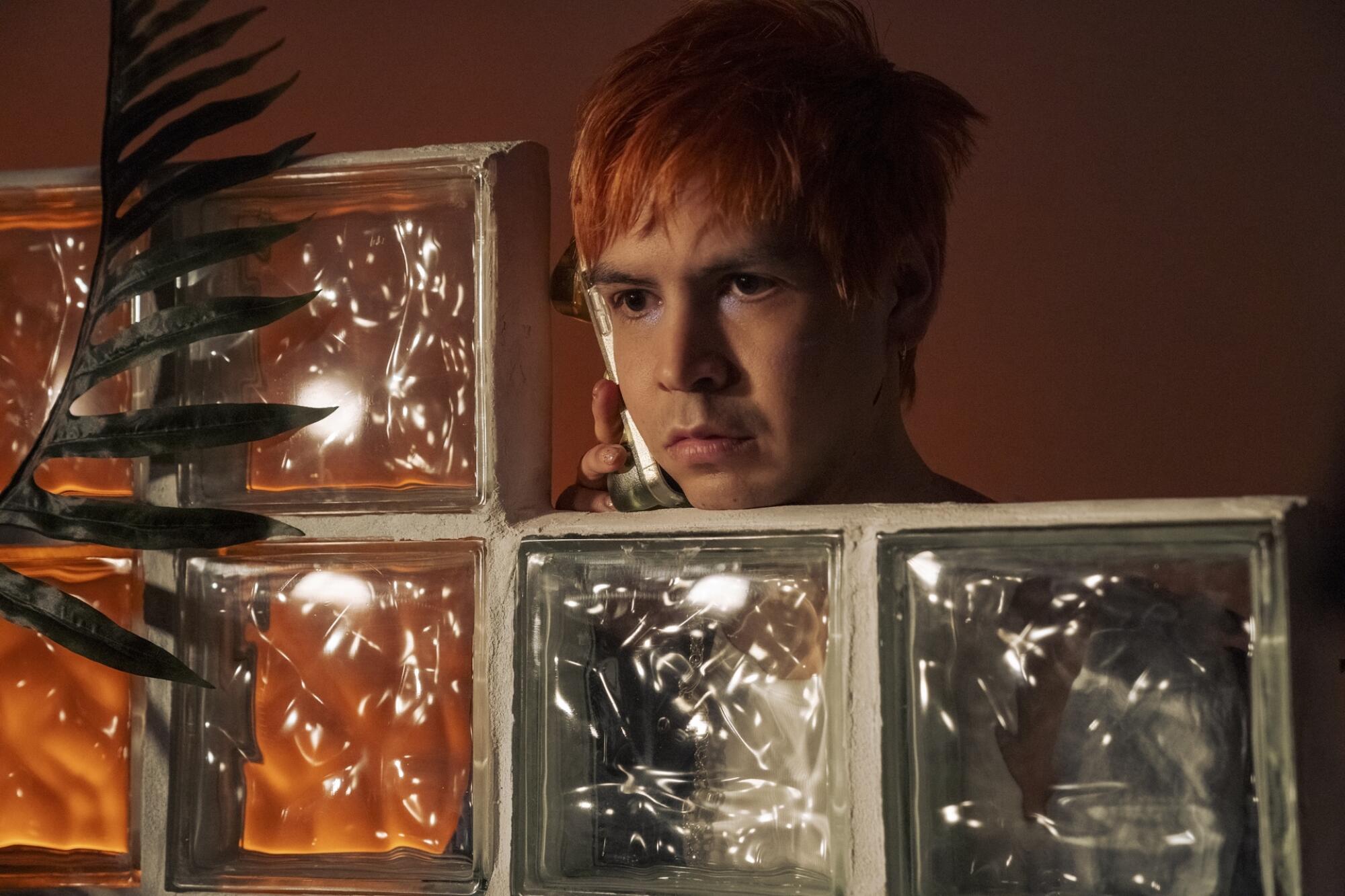
“The way Ryan just wants to be free,” Torres said with a laugh. “I love working with people who have that kind of energy you can feel through the screen.”
“Fantasmas” was his opportunity to reunite with Stone and work with a wish list of performers, including Alexa Demie, Ziwe and Dominique Jackson (“She’s so powerful but also so soothing. It’s almost like she has the energy of a religious leader.”) It also marked his first time working with performance artist Martine Gutierrez, who plays Torres’ agent, Vanesja. Onscreen, she’s a super giant who turns the comedy into a campy soap opera each time she appears.
“One of the early references for her was a character from [Mexican telenovela] ‘La Usurpadora,’” Torres said. “There’s a bad twin who has this fierce bob. I sent Martine a clip, and I feel like she took a little bit of it and created a whole Almodóvar-esque heroine.”
That element of collaboration is something he says he missed from his time working on “SNL.” Returning to the short-form structure gave him more flexibility to delve into characters that he could pick up and discard on a whim. “They’re like Sims,” he added.
But it also presented him with new challenges. Like a sketch show, “Fantasmas” needed more sets and costumes than the average sitcom production.
“We had meetings that were like, ‘The numbers aren’t adding up,’” he said. “I got an email like, ‘Well, this set can no longer have walls.’ I asked if it still had a floor, and when they said, ‘No,’ that’s when you just have to call wardrobe and be like, ‘OK, these clothes have to shine. The wig has to shine,’ because there’s nothing else.”
It was stressful, sure, but it ultimately never felt like a drag. Torres surrounds himself with people who are just as scrappy and imaginative as he is, and he operates from the belief that his work should be fun for everyone.
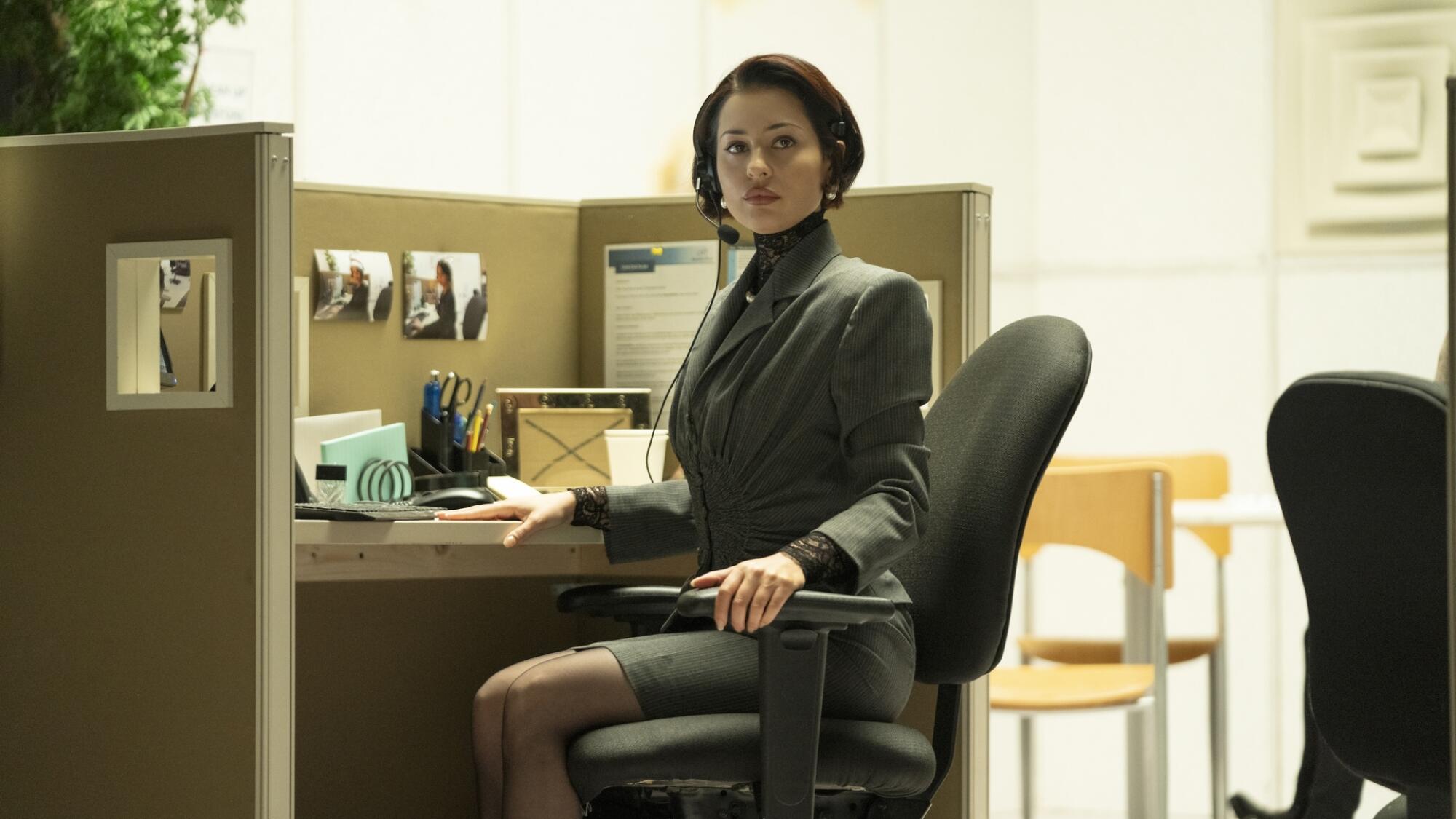
“I fundamentally disagree with the idea that in order to make something good, you need to be overworked and miserable,” he said. “It’s a very American thing to glamorize hard work. People still see ‘The Devil Wears Prada’ and think, ‘Oh, I want a job that treats me like s—,’ and I just think ‘Why?’”
In a TV landscape with so few Latino showrunners and dismal representation, that Torres has the space to create projects as supremely weird and indulgent as “Fantasmas” feels like something of a miracle.
Even within the realm of “Latino TV,” Torres exists in his own lane. He creates stories that are clearly shaped by his experiences but aren’t concerned with being universal. He’s constantly adding to the cultural landscape instead of adhering to ideas and tropes we’ve already seen.
“I’m not attempting to write one of those little books by the cash register: the ‘What Is Latinidad?’, ‘What Is Queer?’ soft-cover booklets,” he said. “I’m not preoccupied with creating a thesis statement for a larger community. This is just life as I see it, and how I feel it.”
Once he’s finished a project, Torres is just eager to have it out in the world. And while there might be outsize pressure for writers of color to perform well, he says the numbers are none of his business.
“It’s like, ‘Honey, I sold you the cake. Now you’re gonna call me from the birthday party to tell me if the people like it?’” he says. “‘Just serve the cake and leave me out of it, because I had a blast making it.’”
